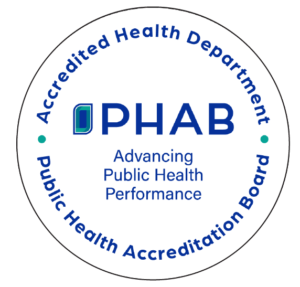What is pertussis?
Pertussis is an illness caused by bacteria (germs) that causes coughing and gagging with little or no fever. A person who has pertussis may cough until they vomit and may have a “whoop” sound when the person breathes in.
What are the symptoms of pertussis?
Symptoms happen six to 21 days after coming into contact with a person who has pertussis. Pertussis starts with cold symptoms (runny nose, cough) and then times of extreme coughing that can last one to two months. A person may vomit after extreme coughing. The person may look and feel healthy when they are not coughing.
What other complications (problems caused by pertussis) can happen if I have pertussis?
Pertussis is most dangerous to infants under one year old who may get pneumonia, convulsions and rarely, brain damage. Serious problems are less likely in older children and adults.
How is pertussis spread?
Pertussis is spread when a person with pertussis coughs, sneezes or talks. People treated with antibiotics can spread pertussis until they have been on antibiotics for five days. Unimmunized children (children who have not had their shots) and children who have not had all of their shots are more likely to have serious illness of pertussis. Protection from the vaccine (shot) lasts for five to 10 years. People who have had the vaccine are able to get a milder case of pertussis.
What is the treatment for pertussis?
If you have symptoms of pertussis, you must see a doctor who can give you antibiotics to treat it. Drink plenty of liquids to stop from becoming dehydrated.
How do I stop from getting pertussis?
- Pertussis vaccine is part of the DTaP vaccine. Before age seven, children should get five doses of the DTaP vaccine, usually at ages two, four, six, and 15-18 months of age and four to six years of age.
- People with pertussis should stay home and avoid being around other people until they have been on antibiotics for five days.
- If you live or have close contact with someone who has pertussis, call your doctor to receive antibiotics also.
- People with a cough should not have contact with infants and pregnant women, including working in labor, delivery, and nursery areas of hospitals and in daycare centers.
- Do not share with infants any food, toys or other things that may have touched the mouths or noses of other people.

